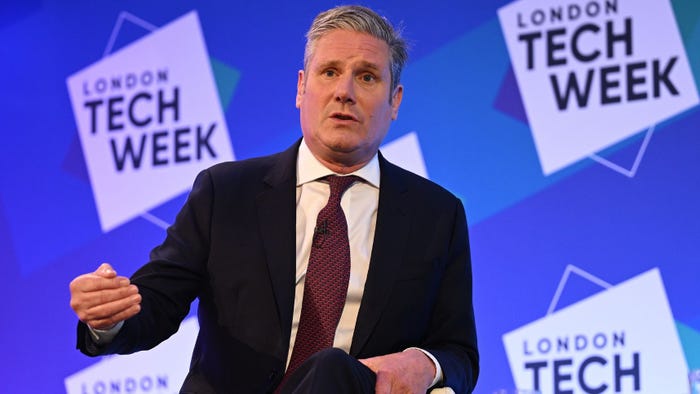UK Labor Party Vows Crackdown on 'Radicalizing' AI Chatbots
Shadow home secretary warns generative AI could propel online extremism ‘to a new level'

At a Glance
- Labor Party is set to criminalize chatbots being used to spread hate as opposition outlines national security pledges.
The U.K. Labor Party said it will criminalize those who train chatbots for nefarious purposes including generating terrorist content.
Yvette Cooper, the shadow home secretary, said a Labor government would work with law enforcement and the intelligence community to stop “stop radicalizing chatbots.”
In a speech at defense think tank RUSI (Royal United Services Institute), she said generative AI could propel online extremism “to a new level.”
“Our democracy faces new threats – from organized groups and state-sponsored actors using misinformation, fake news, deep fakes and conspiracy theories online.”
The shadow home secretary referenced what she called “disturbing” cases of AI being used for nefarious purposes, including the AI model trained on 4Chan user comments and the perpetrator of the 2021 assassination attempt on the late Queen Elizabeth who was allegedly spurred on by AI.
Cooper argued that algorithms and extremist online forums are preying on vulnerable people.
Cooper’s comments come ahead of the expected release of the U.K. government’s updated counter-terrorism strategy.
Labor wants ‘stronger’ AI regulation
The Labor Party is the largest opposition group in the U.K. Parliament. The election, which must be held in January 2025 at the latest, could see Labor win 470 seats at the next election, according to an MRP poll conducted in June.
Voters are largely expected to turn on the Conservative Party after 12 years in power, with many unhappy with overwhelmed health care services, stagnant wages, failure to resolve industrial actions and a string of scandals.
And as the Sunak administration has sought to position itself as AI-savvy, so too has Sir Keir Starmer and his Labor Party.
At London Tech Week in June, the opposition leader said Labor would take a “stronger” approach to AI regulations compared to the current administration’s ‘light touch’ stance.

Keir Starmer wants Labor to take a ‘whole-economy approach’ to AI. Leon Neal/Getty Images
The Labor leader said his party would introduce “an overarching regulatory framework.”
This week, a report published by the Ada Lovelace Institute criticized the U.K. government’s current approach. The think tank said the U.K. “risks being undermined by challenges relating to the coverage of the U.K. regulatory system.” The report also questioned the capability of regulators to fulfil the country’s AI ambitions, setting out 18 recommendations to “ensure that AI regulation in the U.K. works for people and society.”
Like PM, like Shadow PM
Starmer, like Prime Minister Rishi Sunak, touted AI as having a potentially transformative impact on the country’s public health care provider, the National Health Service, which is currently under intense strain.
The shadow government has met with Google representatives to discuss AI. Google CEO Sundar Pichai also met Sunak to talk tech last month.
A recent survey of MPs, however, found that two-thirds say they do not have confidence in regulators' ability to govern AI.
Read more about:
ChatGPT / Generative AIAbout the Author(s)
You May Also Like


.jpg?width=700&auto=webp&quality=80&disable=upscale)
.jpg?width=700&auto=webp&quality=80&disable=upscale)

.jpg?width=300&auto=webp&quality=80&disable=upscale)
.jpg?width=300&auto=webp&quality=80&disable=upscale)
.jpg?width=300&auto=webp&quality=80&disable=upscale)
.jpg?width=300&auto=webp&quality=80&disable=upscale)
.jpg?width=300&auto=webp&quality=80&disable=upscale)